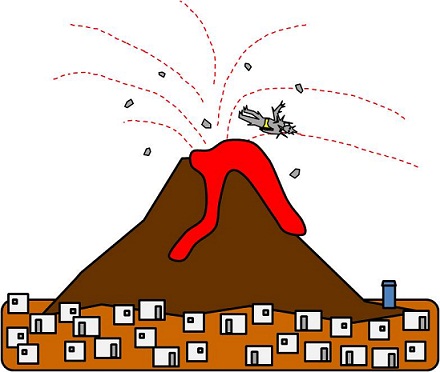THE TAKE AWAY
Science Fiction Part 2
Free Will and a Blue Box
By Kersley Fitzgerald


Sci Fi the Series
The Eternal God
Free Will and a Blue Box
Calvinism and Vincent
Faith of Dragons
Sins, Souls, and Sentience
Daughters and Gifts

It's entirely possible that I see spiritual metaphors in science fiction because that's what I read and watch. Or it could be that science fiction has a unique role in modern literature. It's a way of exploring truth and the human condition in an environment that is so foreign, we're able to contemplate without getting defensive. Mostly. It's certainly a way of presenting the opposing side in a sympathetic way.
Free Will and God's Sovereignty
One of my (few) readers suggested going into more detail about the BBC show Doctor Who. It's about an alien Time Lord who wanders the universe in a time-traveling British police call box, getting himself into trouble and the human race out of trouble. It started in the 60s, and I remember watching it as a kid* — every Thursday night my dad would pull the TV cart around so it faced the dining room, and we'd watch the hour-and-a-half show on PBS. It originally ran from 1963 to 1989, justifying the frequent change of actors by saying every time the Doctor died, he regenerated and got a new body. And personality. In 2005, it started up again, and has had a really excellent run. (Yes, Dev, and a much larger special effects budget.)
Anyway, the Doctor travels through time, generally with one or more human "companions" (i.e.: clueless people the Doctor gets to explain things to). Lately, as he's visited a doomed station on Mars or taken his companion to Vesuvius right before the volcano explodes, the argument has come up, why can't he just go back in time and fix this? How come he can save the day in some situations but not in others?
His response is "some things are fixed in time." Some things, major events, are meant to be and cannot be changed without destroying the fabric of the universe. Those astronauts on Mars had to die because their death inspired the people of Earth to push farther and explore the universe. Mt. Vesuvius had to erupt because that was the only way to destroy the giant rock aliens who were trying to take over the planet.
In addition, the Doctor often lands in a place and time that he knows is wrong somehow. The development of civilization isn't what it's supposed to be, or the wrong person is in control. He knows because he looked into the time vortex and can see all of time simultaneously (kind of like God, except with headaches). In that case, he can't go back and prevent the wrongness from occurring; he can only work from that point forward to set it straight.
These silly little literary devices, meant to contain the boundaries of the made-up universe so that tension is possible in a plot, have really educated my way of thinking about free will and God's sovereignty. Why does God allow pain? Because people have free will. Why did He allow the holocaust? Because some moments in time, like the birth of Christ and His crucifixion, are "fixed." God's plan was for Jews to return to Israel. Did the Holocaust have to happen? I don't know, but once it did, God's plan was fulfilled. We can make our own choices, to an extent. We can't significantly alter the framework of God's plan, but we can choose to influence others around us for good or bad (see "Vincent and the Doctor" — and try not to weep uncontrollably). We can see wrong and allow God to use us to fix it. There is a crazy dance going on around us between things we can affect and things we can't — and we don't know which is which. Only God does. Our job, then, is to look to Him for guidance as to what it is we should be doing.
*No, I didn't watch it in the 60s!

Next: Calvinism, the Doctor, and Vincent van Gogh
comments powered by Disqus
Published 6-15-11

